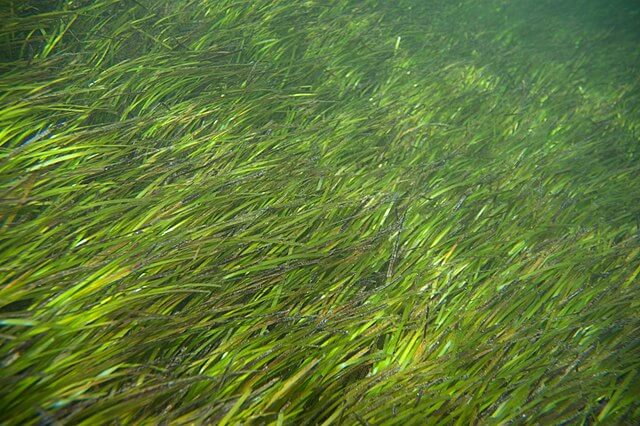
Carbon-absorbing underwater meadows planted.
In order to create underwater meadows that will combat climate change, five million seagrass seeds will be planted off the coast of Wales.
50,000 were laid on Wednesday at Penychain, which is off the Lln Peninsula in Gwynedd.
By 2026, Seagrass Ocean Rescue wants 25 acres (ten hectares) of seagrass meadow.
WWF Cymru’s Rory Francis said Grains had lost 92% of its seagrass throughout recent years, however it was feasible to “recreate, restore and replant” it.
“It could make a real difference in terms of both absorbing carbon and also of restoring really valuable and important marine habitats,” said Mr Francis.
He stated that 80,000 fish could inhabit a single hectare.
According to Project Seagrass’s Bethan Thomas, seeds could be injected directly into the seabed by planting them in hessian bags or by mixing them with mud.
he said: “Today we are going to be planting over 50,000 seeds and over the course of the project we are hoping to plant over five million.
“We have got very short time windows. We have got to wait for the tide to go out. Once the tide has gone out we can lay out our equipment and then we can get our plot set up.”
In order to demonstrate that it was possible, a trial using the bag planting method was carried out in Pembrokeshire.
This spring, restoration will continue at a few locations along the coast of Pen Lln and next year on Anglesey.
According to Project Seagrass’s Bethan Thomas, seeds could be injected directly into the seabed by planting them in hessian bags or by mixing them with mud.
She said: “Today we are going to be planting over 50,000 seeds and over the course of the project we are hoping to plant over five million.
“We have got very short time windows. We have got to wait for the tide to go out. Once the tide has gone out we can lay out our equipment and then we can get our plot set up.”
In order to demonstrate that it was possible, a trial using the bag planting method was carried out in Pembrokeshire.
This spring, restoration will continue at a few locations along the coast of Pen Lln and next year on Anglesey.
He said Grains’ seagrass knolls had been gradually annihilated over the long haul by industry.
“We have built cities and ports, we have had huge mining projects. We have fundamentally changed the coastal environment and with that we have destroyed life on the sea beds.”
Together with the Project Seagrass, Swansea University, North Wales Wildlife Trust, and Pen Lln a’r Sarnau Special Area of Conservation, WWF is managing the project.
——————————————————————————
At Natural World Fund, we are passionate about stopping the decline in our wildlife.
The declines in our wildlife is shocking and frightening. Without much more support, many of the animals we know and love will continue in their declines towards extinction.
When you help to restore a patch of degraded land through rewilding to forests, meadows, or wetlands, you have a massive impact on the biodiversity at a local level. You give animals a home and food that they otherwise would not have had, and it has a positive snowball effect for the food chain.
We are convinced that this is much better for the UK than growing lots of fast-growing coniferous trees, solely to remove carbon, that don’t actually help our animals to thrive.
This is why we stand for restoring nature in the UK through responsible rewilding. For us, it is the right thing to do. Let’s do what’s right for nature!
Support our work today at https://naturalworldfund.com/ and join in the solution!

